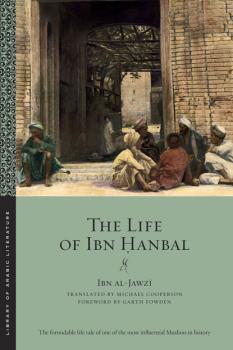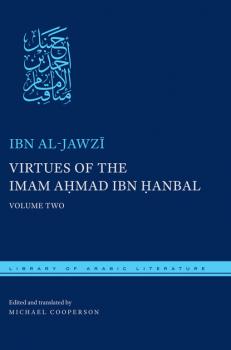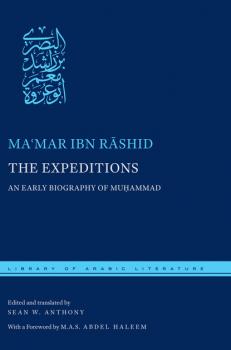ТОП просматриваемых книг сайта:
Library of Arabic Literature
Скачать книги из серии Library of Arabic LiteratureАннотация
Patronage, power, and competition in the Sultan’s court The Sword of Ambition opens a new window onto interreligious rivalry among elites in medieval Egypt. Written by the unemployed bureaucrat 'Uthman ibn Ibrahim al-Nabulusi, it contains a wealth of little-known historical anecdotes, unusual religious opinions, obscure and witty poetry, and humorous cultural satire. Leaving no rhetorical stone unturned, al-Nabulusi pours his deep knowledge of history, law, and literature into the work—addressed to the Ayyubid sultan—as he argues against the employment of Coptic and Jewish officials. Written at a time when much of the inter-communal animosity of the era was conditioned by fierce competition for scarce resources that were increasingly controlled by an ideologically committed Sunni Muslim state, The Sword of Ambition reminds us that “religious” conflict must always be considered in its broader historical perspective.An English-only edition.
Информация о книге
Автор произведения 'Uthman ibn Ibrahim al-Nabulusi
Аннотация
Questions and answers from two great philosophers Why is laughter contagious? Why do mountains exist? Why do we long for the past, even if it is scarred by suffering? Spanning a vast array of subjects that range from the philosophical to the theological, from the philological to the scientific, The Philosopher Responds is the record of a set of questions put by the litterateur Abu Hayyan al-Tawhidi to the philosopher and historian Abu 'Ali Miskawayh. Both figures were foremost contributors to the remarkable flowering of cultural and intellectual life that took place in the Islamic world during the reign of the Buyid dynasty in the fourth/tenth century. The correspondence between al-Tawhidi and Miskawayh holds a mirror to many of the debates and preoccupations of the time and reflects the spirit of rationalistic inquiry that animated their era. It also provides insight into the intellectual outlooks of two thinkers who were divided as much by their distinctive temperaments as by the very different trajectories of their professional careers. Alternately whimsical and tragic, wondering and brooding, trivial and profound, al-Tawhidi’s questions provoke an interaction as interesting in its spiritedness as in its content. This new edition of The Philosopher Responds is accompanied by the first full-length English translation of this important text, bringing this interaction to life for the English reader.A bilingual Arabic-English edition.
Аннотация
Questions and answers from two great philosophers Why is laughter contagious? Why do mountains exist? Why do we long for the past, even if it is scarred by suffering? Spanning a vast array of subjects that range from the philosophical to the theological, from the philological to the scientific, The Philosopher Responds is the record of a set of questions put by the litterateur Abu Hayyan al-Tawhidi to the philosopher and historian Abu 'Ali Miskawayh. Both figures were foremost contributors to the remarkable flowering of cultural and intellectual life that took place in the Islamic world during the reign of the Buyid dynasty in the fourth/tenth century. The correspondence between al-Tawhidi and Miskawayh holds a mirror to many of the debates and preoccupations of the time and reflects the spirit of rationalistic inquiry that animated their era. It also provides insight into the intellectual outlooks of two thinkers who were divided as much by their distinctive temperaments as by the very different trajectories of their professional careers. Alternately whimsical and tragic, wondering and brooding, trivial and profound, al-Tawhidi’s questions provoke an interaction as interesting in its spiritedness as in its content. This new edition of The Philosopher Responds is accompanied by the first full-length English translation of this important text, bringing this interaction to life for the English reader.A bilingual Arabic-English edition.
Аннотация
A luminous translation of Arabic tales of enchantment and wonder Translated into English for the very first time, A Hundred and One Nights is a marvelous example of the rich tradition of popular Arabic storytelling. Like the celebrated Thousand and One Nights , this collection opens with the frame story of Scheherazade, the vizier’s gifted daughter who recounts imaginative tales night after night in an effort to distract the murderous king from taking her life. A Hundred and One Nights features an almost entirely different set of stories, however, each one more thrilling, amusing, and disturbing than the last. Here, we encounter tales of epic warriors, buried treasure, disappearing brides, cannibal demon-women, fatal shipwrecks, and clever ruses, where human strength and ingenuity play out against a backdrop of inexorable, inscrutable fate. Distinctly rooted in Arabic literary culture and the Islamic tradition, these tales draw on motifs and story elements that circulated across cultures, including Indian and Chinese antecedents, and features a frame story possibly older than its more famous sibling. This vibrant translation of A Hundred and One Nights promises to transport readers, new and veteran alike, into its fantastical realms of magic and wonder.An English-only edition.
Аннотация
Uplifting tales from one of the most influential Arabic books of the Middle Ages One of the most popular and influential Arabic books of the Middle Ages, Deliverance Follows Adversity is an anthology of stories and anecdotes designed to console and encourage the afflicted. Regarded as a pattern-book of Arabic storytelling, this collection shows how God’s providence works through His creatures to rescue them from tribulations ranging from religious persecution and medical emergencies to political skullduggery and romantic woes. A resident of Basra and Baghdad, al-Tanukhi (327–84/939–94) draws from earlier Arabic classics as well as from oral stories relayed by the author’s tenth-century Iraqi contemporaries, who comprised a wide circle of writers, intellectuals, judges, government officials, and family members. This edition and translation includes the first three chapters of the work, which deal with Qur'anic stories and prayers that bring about deliverance, as well as general instances of the workings of providence. The volume incorporates material from manuscripts not used in the standard Arabic edition, and is the first translation into English. The complete translation, spanning four volumes, will be the first integral translation into any European language.A bilingual Arabic-English edition.
Информация о книге
Автор произведения al-Muhassin ibn 'Ali al-Tanukhi
Аннотация
Sayings of the Prophet Muhammad, wielding an authority second only to the Qur'an. The words of Muhammad (d. 11/632), God's messenger and prophet of Islam, have a special place in the hearts of his followers. Wielding an authority second only to the Qur'an, Muhammad’s hadith are cited by scholars as testimonial texts in a vast array of disciplines—including law, theology, metaphysics, poetry, grammar, history, and medicine—and are quoted by Muslims to one another in their daily lives.Assembling Muhammad’s words has been a major preoccupation for scholars throughout the fourteen centuries since his death, resulting in an abundance of compilations. Among the legally-grounded collections, which aimed to guide the community in its practice of religious law and ritual worship, one which stands out in particular is Light in the Heavens ( Kitab al-Shihab ) by al-Qadi al-Quda'i, a Shafi'i judge in the Fatimid court in Egypt. The collection’s overall conceptualization is distinctively ethical and pragmatic, and offers humanitarian lessons and practical insights with universal appeal.From North Africa to India, generations have used Light in the Heavens as a teaching text for children as well as adults, and many of its 1200 sayings are familiar to individuals of diverse denominations and ethnicities. For Muslims—who consider Muhammad’s teachings the fount of wisdom and the beacon of guidance in all things, mundane and sublime—these sayings provide a direct window into the inspired vision of one of the most influential humans to have walked the Earth.A bilingual Arabic-English edition.
Аннотация
The Life of Ibn Hanbal is a translation of the biography of Ibn Hanbal by the Baghdad preacher, scholar, and storyteller Ibn al-Jawzi (d. 597/1200), newly abridged for a paperback readership by translator Michael Cooperson. Ahmad ibn Hanbal (d. 241/855), renowned for his profound knowledge of hadiths—the reports of the Prophet’s sayings and deeds—is a major figure in the history of Islam. He was famous for living according to his own strict interpretation of the Prophetic model and for denying himself the most basic comforts, even though his family was prominent and his city, Baghdad, was then one of the wealthiest in the world. Ibn Hanbal’s piety and austerity made him a folk hero, especially after he resisted the attempts of two caliphs to force him to accept rationalist doctrine. His subsequent imprisonment and flogging is one of the most dramatic episodes of medieval Islamic history, and his principled resistance influenced the course of Islamic law, the rise of Sunnism, and the legislative authority of the caliphate. Set against the background of fierce debates over the role of reason and the basis of legitimate government, The Life of Ibn Hanbal tells the formidable life tale of one of the most influential Muslims in history. An English-only edition.
Информация о книге
Автор произведения Ibn al-Jawzi
Аннотация
Ahmad ibn Hanbal (d. 241/855), renowned for his profound knowledge of hadith—the reports of the Prophet’s sayings and deeds—is a major figure in the history of Islam. Ibn Hanbal’s piety and austerity made him a folk hero, especially after his principled resistance to the attempts of two Abbasid caliphs to force him to accept rationalist doctrine. His subsequent imprisonment and flogging became one of the most dramatic episodes of medieval Islamic history. Ibn Hanbal’s resistance influenced the course of Islamic law, the rise of Sunnism, and the legislative authority of the caliphate. Virtues of the Imam Ahmad ibn Hanbal is a translation of the biography of Ibn Hanbal penned by the Baghdad preacher, scholar, and storyteller, Ibn al-Jawzi (d. 597/1201). It includes insights into Ibn Hanbal’s childhood, travels, and teachings, as well as descriptions of his way of life. This second and final volume gives a vivid account of Ibn Hanbal’s legendary confrontation with the caliphal Inquisition, including his imprisonment, trial, and flogging. Ultimately, it recounts how the people of Baghdad came to admire him as a symbol of Sunni Islam. A bilingual Arabic-English edition.
Аннотация
The Expeditions is one of the oldest biographies of the Prophet Muhammad to survive into the modern era. Itsprimary author, Ma'mar ibn Rashid (714/96-770/153), was a prominent scholar from Basra in southern Iraq who was revered for his learning in prophetic traditions, Islamic law, and the interpretation of the Qur'an. This fascinating foundational seminal work contains stories handed down by Ma'mar to his most prominent pupil, 'Abd al-Razzaq of Sana'a, relating Muhammad’s early life and prophetic career as well as the adventures and tribulations of his earliest followers during their conquest of the Near East.Edited from a sole surviving manuscript, the Arabic text offers numerous improved readings over those of previous editions, including detailed notes on the text’s transmission and variants as found in later works. This new translation, which renders the original into readable, modern English for the first time, is accompanied by numerous annotations elucidating the cultural, religious and historical contexts of the events and individuals described within its pages. The Expeditions represents an important testimony to the earliest Muslims’ memory of the lives of Muhammad and his companions, and is an indispensable text for gaining insight into the historical biography of both the Prophet and the rise of the Islamic empire.A bilingual Arabic-English edition.
Информация о книге
Автор произведения Maʿmar ibn Rāshid










